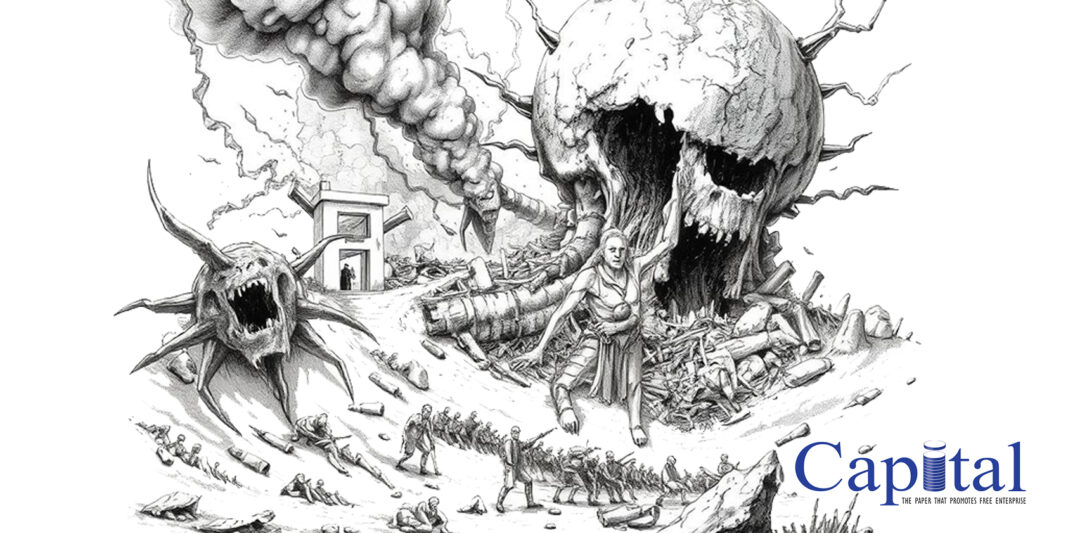In the 21st century, amid astonishing advances in technology, communication, and a professed global consciousness, the unfolding starvation crisis in Gaza stands as a brutal testament to humanity’s collective failure. Despite the world watching in near real-time, paralyzed by silence and inaction, children and families are dying—not from natural disasters, but from deliberate policies that suffocate their access to food, medicine, and hope. As human beings, this leaves us not just heartbroken but helpless, questioning the very point of a world where such suffering is allowed to persist, where the bleak reality in Gaza might tomorrow mirror crises in our own backyards.
The numbers are harrowing. Since the assault began in October 2023, hundreds if not thousands have died of starvation and malnutrition, with fresh deaths still reported daily. These are not faceless statistics but real lives extinguished by man-made blockades, restrictions, and denial of humanitarian aid. The world’s response? Mere murmurs of condemnation and sporadic, insufficient aid that trickles in too slowly, too little, too late.
UN officials describe the people of Gaza as “walking corpses,” victims not only of physical hunger but of the slow erosion of dignity and hope. Leading humanitarian voices call out for urgent ceasefires and unhindered aid access. Even outspoken political figures, who might typically spin narratives, publicly acknowledge the starvation occurring. Yet the brutal machinery of blockade remains firmly in place, with aid convoys facing security risks and bureaucratic delays that starve aid before it reaches the hungry.
We are confronted with harsh truths: starvation has been weaponized. Despite denials from those imposing the siege, credible entities like the World Health Organization and the United Nations paint a consistent, grim picture of a famine unfolding. It is a famine born not of nature, but policy—a strategic choice that condemns innocent civilians to slow, agonizing deaths.
This horrific tragedy is not unprecedented in human history. Previous famines in places like Somalia, Yemen, and Ethiopia have shown us that history’s harshest judgment falls not only on perpetrators but on the global bystanders who remain silent, rationalize inaction, or throw half-measures amid the carnage. This silence is complicity. The world’s failure is not an error but a profound moral abdication, a stain on our collective humanity.
As individuals, how are we to cope? How do we reconcile our empathy with our impotence? How can we bear witness to children wasting away, knowing this horror could someday reach us if the walls of neglect and passivity are not shattered? This crisis starkly reminds us there is no guarantee of safety or distance in an interconnected world—today’s starvation could be tomorrow’s catastrophe anywhere.
The time for platitudes and symbolic gestures has long passed. What Gaza demands—and what our shared humanity insists upon—is bold, unrelenting action: a comprehensive ceasefire enforced by resolute global will, accompanied by massively scaled humanitarian aid delivered without obstruction. Less than that is a tragic surrender to injustice.
Breaking the silence is not merely an act of political will. It is a moral imperative. Our voices, outrage, and resolve are the only recourse for those who cannot speak or fight for themselves—the starving children whose cries echo across borders and beneath the veneer of diplomatic indifference.
Let this moment awaken us from paralysis. Let it remind us that apathy is the enemy of life and justice. The shame of Gaza will be ours if we choose to look away. If, as humans, we feel helpless now, we must remember that helplessness is defeated only when collective conscience turns into collective action.
Because in a world of plenty, starvation is a crime—and letting it happen in Gaza is a wound in the soul of humanity that threatens to infect us all.






